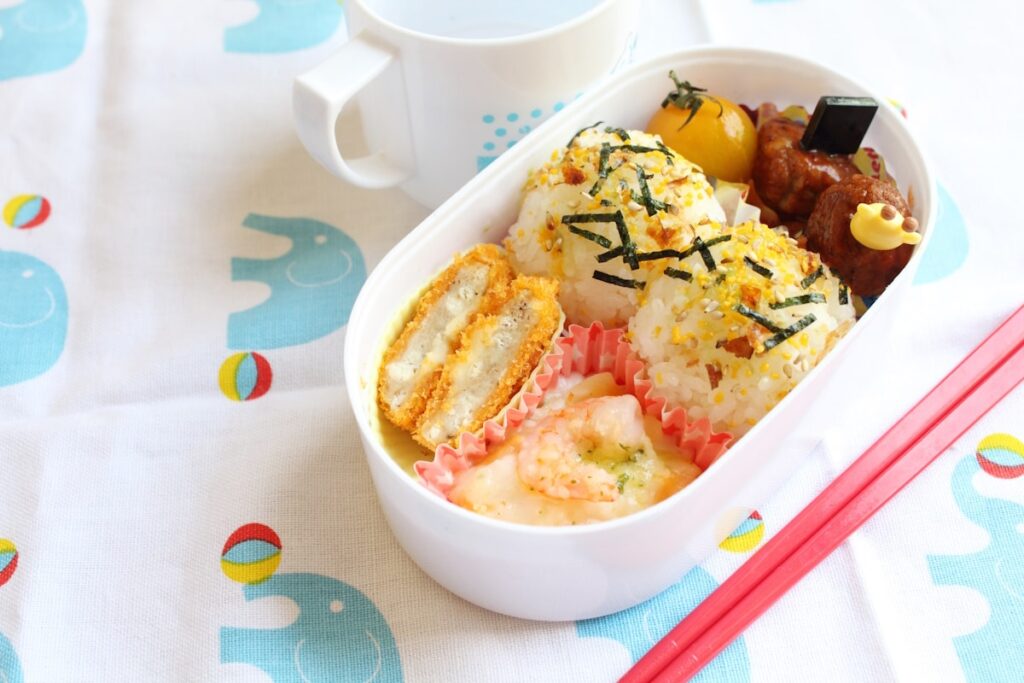[ad_1]
Is it rude to bring your own seasonings to school? That’s the debate playing out currently in Japan, where one school district is allowing kids to bring their own rice toppings (furikake) to class. That, says some politicians, is gonna ruin their health. One commentator even went so far as to brand it as “rude”.
The problem (?) with furikake
If you don’t know furikake – well, let me educate you. Furikake (ふりかけ) is a popular topping added to rice that brings a punch of flavor to an otherwise plain side dish. The topping is truly an ancient Japanese tradition; there are records as far back as Japan’s Kamakura Era of people using dried seabream (鯛; tai), shark, and bonito flakes on rice to make it more palatable.
These days, you can buy a near-infinite variety of furikake at any grocery store in Japan. (We’ve discussed some of the more popular ones before if you want to know what’s good.)
So furikake, in and of itself, isn’t controversial. What’s controversial is what’s going down in Kawanishi, Hyogo Prefecture. The city decided that it would start allowing middle school students to bring their own furikake to class.
The reason? Too many kids weren’t finishing their rice, which officials frowned upon as mottainai (wasteful). When the school board asked students what they could do differently, some suggested the furikake idea.
The city’s Board of Education approved the change in September 2023. It carries some restrictions. Only one bag per student is allowed and students aren’t allowed to trade/switch bags.
Since its introduction, only 7.4% of students say they bring furikake to school every day. A full 77% say they’ve ever brought any.
Advertisements
A chorus of naysayers

Despite the low pick-up, some politicians in the Kawanishi city legislature say that furikake choice is gonna be the death of the city’s children.
At a legislative session in September, legislator Kuroda Michi of Japan’s Communist Party (JCP) blasted the policy. “School lunches are supervised to ensure nutritional balance and to ensure sanitary conditions and prevent accidents related to things like food poisoning. Paving the way to let kids bring other food from home contains danger.”
4chan founder and general “man with an opinion on everything” Internet personality Hiroyuki went even further. He branded the new allowance as “vulgar” and “rude”. “They should be teaching the kids as people to finish eating what they were served.
Kuroda also argued that the school system had just started to provide full meals to students and needed time to ensure it was providing meals free from allergens. She questioned whether waste in the barely one-year-old program is actually a big deal and blasted the school board for not consulting experts.
Public and expert reaction
So what does the general public in Japan think of the controversy?
Writing in the Yahoo! News comments section, food loss journalist Ide Rumi said that she found the measure “clumsy”. She notes that other schools have seen a double-digit reduction in waste with more thoughtful measures.
Ide lauds the idea of asking the kids themselves what the schools could do better. But she thinks that “adults who have a wider vision” should have proposed more far-reaching solutions.
However, many commenters seem to think that, if it reduces food loss, then what’s the big deal? One popular comment said that their sixth-grade teacher would always make seasoned onigiri for students who couldn’t finish their rice. Eventually, this evolved into the teacher giving an onigiri as a “present” to anyone who finished their side dishes. The commenter says that, as a result, the class eliminated food loss entirely.

It’ll be interesting to see if the school stays course or backtracks – or looks for new ways to address the serious problem of food loss.
Sources
給食ふりかけ持参で生徒と市議会が対立「食べ残しの問題がふりかけに集約されてしまった」「決め方に危機感を持っている」. Ameba Times
ふりかけ. Wikipedia JP
[ad_2]
Source link



